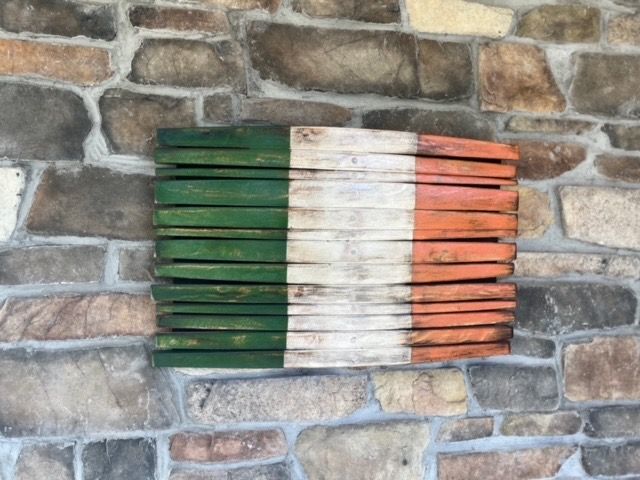[caption id="attachment_69061" align="aligncenter" width="600" caption="David Cameron. "]
In April 1998 the latest phase of the Anglo-Irish conflict ended with the signing of the Belfast agreement at Hillsborough Castle. Three decades of armed hostilities that began with Britain's violent suppression of the Catholic civil rights campaign came to an end and the difficult work of securing the peace began.
As it has turned out, implementing the terms of the agreement has proven difficult, and fears remain.
Nevertheless, the fruits of non-violence can be found throughout the North and the collaborative work of First Minister Peter Robinson and Deputy Minister Martin McGuinness is proof of that progress.
But can this peace last if it's built on a lie and not justice?
As the result of a recent British request, U.S. Attorney General Eric Holder and Secretary of State Clinton have a unique opportunity to ensure that progress is sustained.
By way of background, there were two key elements leading up to the adoption of the Belfast, or Good Friday, agreement which are not present today, but which then brought a halt to British treachery.
First, the United States envoy, former Senator George Mitchell, not only gave added voice to the Irish government, but insured the inclusion of several justice provisions of the treaty.
That was then and this is now.
Our current president's only reference to Ireland to date was in last May's 24-hour stopover visit at the "O'Bama" ancestral home on his way to London, and even then there was no referral to the pact.
Second, the attention of the American media in 1998 hindered British attempts at sabotage and smears while the talks were taking place and were struggling towards the finishing line.
After decades of censorship of Sinn Féin, and British dirty tricks via tabloids like the News of the World, Americans were for the first time hearing the other side of the story and smelled a rat.
Today, understandably, the work of securing the peace attracts less media attention than drone strikes in Afghanistan, bombs in Iraq, and the roar of the Arab Spring. This media indifference and/or distraction explains how the latest British efforts to undermine the Irish peace process have received such scant attention.
In February of last year, the British, pursuant to a Mutual Legal Assistance Treaty (MLAT), requested Attorney General Holder to issue a sealed subpoena for oral history records held in the Burns Library of Boston College.
The college opposed the subpoena because to respond would violate the promise to loyalist and republican donors to not reveal contents until their deaths.
It is now apparent that this request for files was little more than a politically motivated attempt to smear Gerry Adams, the leader of Sinn Féin and, at the time of the initial request, a candidate for the Irish Dáil.
Such ham-fisted tactics certainly cast doubts upon the credibility of the British and their commitment to peace; but is it a game changer, something that is enough to de-stabilize the peace process?
It well could be.
In recent years there have been other distressing signs that the fruits of justice, the very foundation of peace, are proving elusive. The agreement's promises of justice and truth are being undermined in subtle and sinister ways.
Consider these related developments: In June, 2010 British Prime Minister Cameron ends the forty years of lying about 13 Catholics killed on Bloody Sunday. However, no one is held accountable. Not Chief Justice Lord Widgery, the author of the whitewash report in 1972; not Lt. Col. Derek Wilford, who still wears his Order of the British Empire awarded by the queen for his "service" on that day.
After Cameron's words, the media proclaimed a new day had dawned, but no one asked why the British had stopped lying.
Here's why.
The mass murder of 13 in Derry was known from that fateful day. Not so well known was the mass murder, in May, 1974, by means of no-warning bombs in Dublin and Monaghan which killed 33 civilians.
Cameron has refused to respond to the 2008 unanimous declaration of the Dáil for an explanation of the British army role. Without media scrutiny, or U.S. questioning or concern, the British government feels under no obligation to explain British involvement in Ireland's equivalent of a 9/11 terrorist attack. The bombings caused what is still the largest loss of life in a single incident since the 1916 Easter Rebellion.
Meanwhile, Al Hutchinson, the Police Ombudsman, was forced to resign early due to criticism that he slowed the pace of investigations and edited out of draft reports the role of police corruption.
The RUC/PSNI have been hiring back retirees to work on the very cases under question and have suspended a program to recruit more Catholics as required by the Patten Report.
A judge, embarrassed by the political imprisonment of Gerry McGeough, has given instructions from the bench for loyalists to sue against royal pardons lest he continue to look like a jackass in continuing his imprisonment of McGeough.
The justice system in Northern Ireland is rife with such horrors underscoring British deceit.
Last October, Prime Minister Cameron acknowledged that security forces colluded with loyalist death squads in the killing of attorney Patrick Finucane.
But he rejected the long promised independent public inquiry into the Finucane assassination. He instead pulled "a Widgery," opting for a private review of documents by a respected solicitor. A whitewash can be expected. The government would rather cover up the facts and truth of the murder rather than risk any more exposure of its "dirty war" in Ireland.
Bret Stephens of the Wall Street Journal insists that "credibility is the coin of the realm in international relations."
Britain's actions in the long grass, away from a probing media, or a U.S. demand for accountability, are threatening the Irish peace process. The bona fides of the United States comes into question if its presumed top ally seeks to undermine a pact it worked so hard to achieve.
Attorney General Holder can, before it is too late, restore American credibility in the peace process if he declines to turn over any documents requested by the British, this until they address all the critical and outstanding justice issues.
Michael Cummings is a member of the national board of the Irish American Unity Conference.










